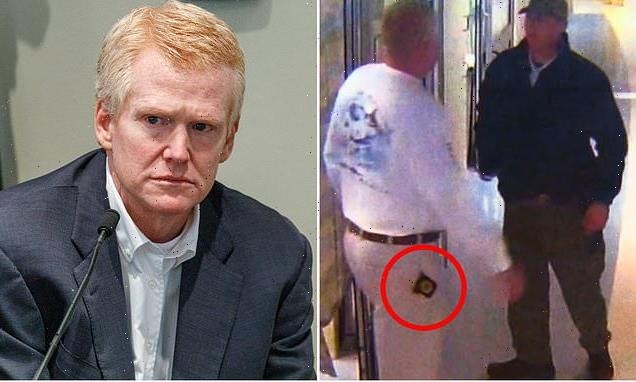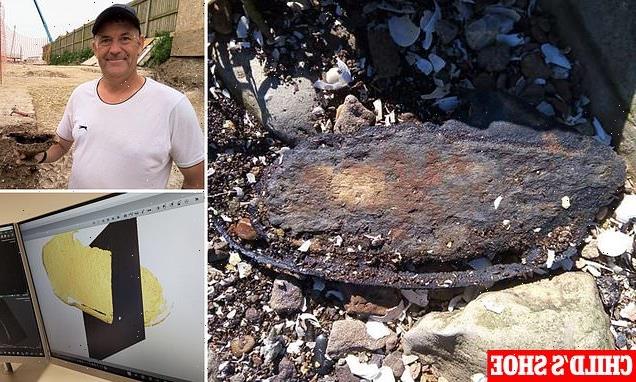Spying law is redrawn…but fresh fears are raised that Press freedom is in jeopardy as politicians, lawyers and the media warn the government over the effects of its National Security Bill
- Politicians, lawyers and the media had all warned the Government about the bill
- Critics said the draconian law risked criminalising reporters or whistleblowers
Fresh fears have been raised that Press freedom is in jeopardy from a new law against foreign spies, despite ministers attempting to allay concerns.
Politicians, lawyers and media organisations had all warned the Government about the chilling effect of its National Security Bill.
This would make it an offence to publish anything that could assist a foreign intelligence service. Critics argued that the draconian law risked criminalising reporters or whistleblowers who revealed leaked documents or sensitive information, and demanded that a specific defence be introduced for public interest journalism.
There were fears that important stories such as the Daily Mail’s recent exposé of bullying and sexual harassment in the Royal Navy’s Submarine Service could be hushed up as a result of the law.
Yesterday the Home Office introduced a series of changes intended to make clear that the Press was not the intended target of the legislation, which is being introduced to update the Official Secrets Act for the era of hi-tech espionage.
The Home Office introduced a series of changes intended to make clear that the Press was not the intended target of the legislation
It insisted the Government wanted to ‘protect all legitimate activity’ and remove the possibility that a reporter could be prosecuted for ‘unwittingly’ helping a hostile state.
The new amendments are meant to clarify that a crime is only committed if a person ‘ought reasonably to know’ that their conduct may assist foreign spies, ‘having regard to other matters known to them’.
And a test of whether someone knows it is ‘reasonably possible’ their conduct may help a foreign intelligence service has been strengthened to say an offence is only committed if what they do is ‘likely to’ assist.
Security minister Tom Tugendhat insisted: ‘These amendments will focus the Bill on the most serious threats we face.’
But critics said the technical changes did not go nearly far enough to protect legitimate journalists from prosecution, and questioned why the Government had not introduced a clear and specific defence for them.
Leading barrister Gavin Millar KC, from Matrix Chambers, said: ‘These amendments do not remove the threat to journalists of serious offences for doing their job, and they do not remove the chilling effect on public interest journalism.
‘The Government say it is not their intention for these clauses to catch journalists, but when asked to make this explicit on the face of the Bill they say they can’t do that.’
Security minister Tom Tugendhat insisted: ‘These amendments will focus the Bill on the most serious threats we face’
Green Party peer Baroness Jones of Moulsecoomb said: ‘We must amend [this Bill] properly to protect freedom of the Press.’
News Media Association chief executive Owen Meredith said: ‘We welcome the Government’s recognition of concerns with the Bill and how, as currently drafted, it risks criminalising journalists for legitimate reporting; contrary to stated intentions.
‘We should not allow a situation where the public is deprived of knowing vital information because legislation unwittingly chills the media. We will therefore consider how the Government’s amendments seek to address those concerns and if they provide a workable solution, or if further amendments are needed to provide clarity.’
DAILY MAIL COMMENT
This newspaper understands the Government wants to do all it can to prevent foreign spies harming the country.
But the imprecisely worded National Security Bill poses a chilling threat to investigative journalism.
Reporters and whistleblowers face 14 years in prison for publishing information that could aid another state – even if it is firmly in the public interest.
Under it, important stories such as our scoop about sexual harassment of women in the Submarine Service could have been silenced.
Yet exposing scandals is crucial to ending them.
If ministers, as they claim, do not intend to prosecute journalists for doing their job, they should make it explicitly clear in the legislation.
We do, after all, live in a democracy – not Putin’s Russia.
Source: Read Full Article




